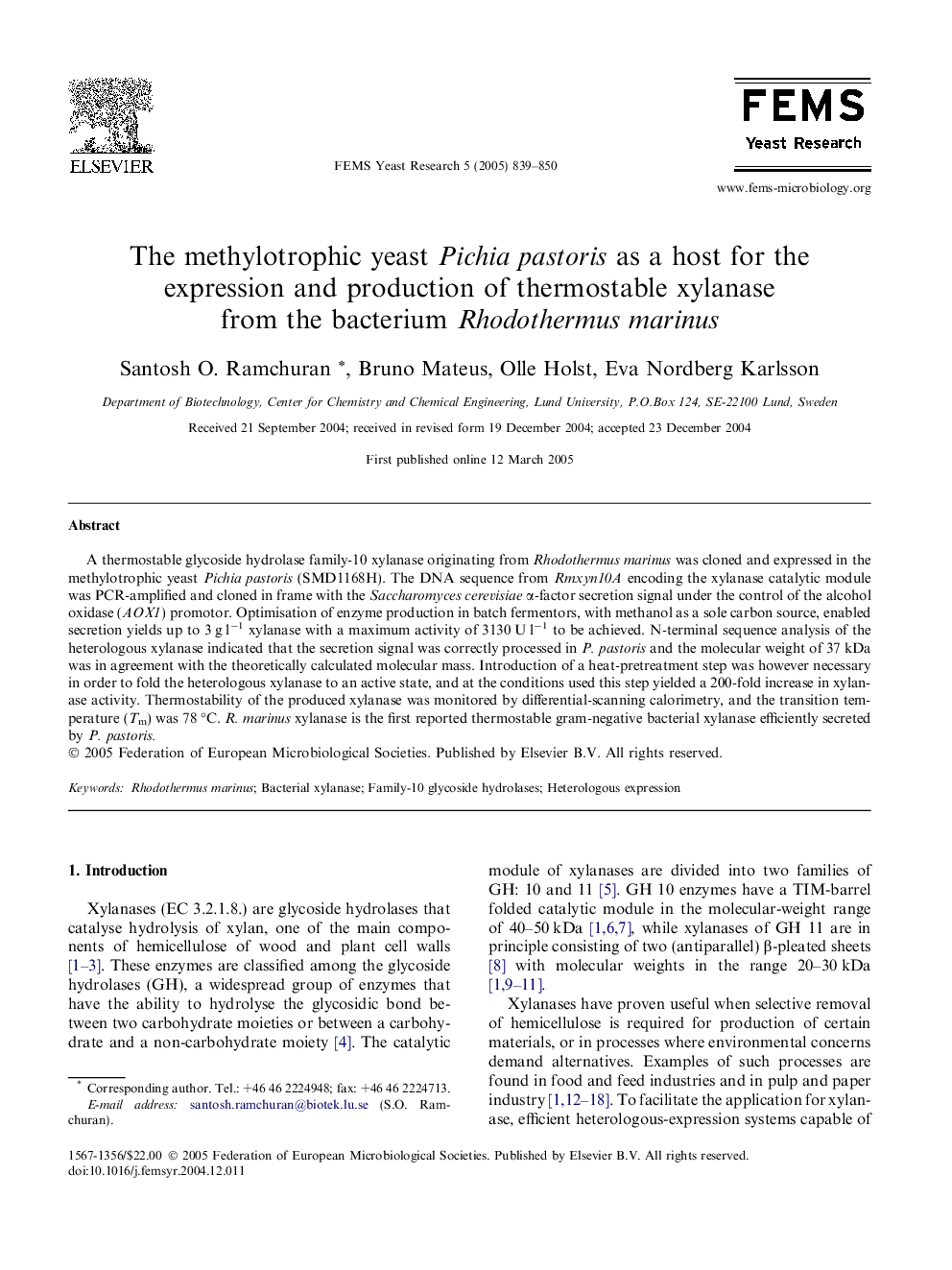| Article ID | Journal | Published Year | Pages | File Type |
|---|---|---|---|---|
| 9278917 | FEMS Yeast Research | 2005 | 12 Pages |
Abstract
A thermostable glycoside hydrolase family-10 xylanase originating from Rhodothermus marinus was cloned and expressed in the methylotrophic yeast Pichia pastoris (SMD1168H). The DNA sequence from Rmxyn10A encoding the xylanase catalytic module was PCR-amplified and cloned in frame with the Saccharomyces cerevisiae α-factor secretion signal under the control of the alcohol oxidase (AOX1) promotor. Optimisation of enzyme production in batch fermentors, with methanol as a sole carbon source, enabled secretion yields up to 3 g lâ1 xylanase with a maximum activity of 3130 U lâ1 to be achieved. N-terminal sequence analysis of the heterologous xylanase indicated that the secretion signal was correctly processed in P. pastoris and the molecular weight of 37 kDa was in agreement with the theoretically calculated molecular mass. Introduction of a heat-pretreatment step was however necessary in order to fold the heterologous xylanase to an active state, and at the conditions used this step yielded a 200-fold increase in xylanase activity. Thermostability of the produced xylanase was monitored by differential-scanning calorimetry, and the transition temperature (Tm) was 78 °C. R. marinus xylanase is the first reported thermostable gram-negative bacterial xylanase efficiently secreted by P. pastoris.
Related Topics
Life Sciences
Immunology and Microbiology
Applied Microbiology and Biotechnology
Authors
Santosh O. Ramchuran, Bruno Mateus, Olle Holst, Eva Nordberg Karlsson,
